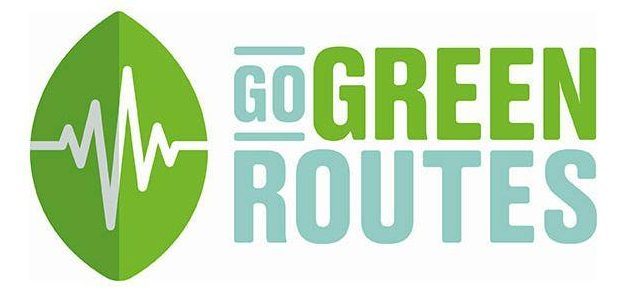GoGreenRoutes Citizen Science Training Programme
Learn to capture data and use the findings to take action
Overview
Would you like to learn new skills to address global challenges and create positive change to make your city healthier and happier? Joining GreenRoutes as a citizen scientist is a fantastic opportunity to learn about important issues, get involved, and transform your city.
There are many ways to get involved in supporting nature and health in cities through participating in citizen science. On this page, you will find all the training materials you need to boost your skills and strengthen your knowledge of citizen science to promote nature-based solutions for urban health across Europe.
You might be looking to enroll in our online course or use our video tutorials and PowerPoint presentations as learning tools for your class or group. Scroll down to learn more about the different ways that you can take part in the programme at a time and place that suits you and your busy schedule.
Programme Summary
This training provides guidance on nine citizen science activities that can be used to better understand nature, health and the urban environment, and bring about positive change in your community. After the training, you will have a good understanding of citizen science and be able to actively participate in monitoring nature-based solutions for urban health in your city.Programme Background
GoGreenRoutes employs a novel approach termed ‘engaged’ citizen science, which involves non-professional volunteers collecting data on key challenges relating to nature and health in the city. Engaged citizen science is a key strategy employed by the project to provide citizen leadership opportunities and build community partnerships, in order to raise public awareness of risks (e.g. air pollution), benefits (e.g. increased urban green space) and empower local people in decision-making at individual, community and city levels. This training initiative is part of GoGreenRoutes’ KNOW programme which aims to support the implementation of nature-based solutions by providing a series of innovative online learning tools to foster psychological resilience, sustainability, and nature-connectedness and to promote engaged citizen science activities.
Programme Details
Who is this training for?
This training is for anyone with an interest in learning about citizen science.
What is the aim of this training?
The purpose of the training is to provide access to information and resources that help to build the capacity of engaged citizen science in urban areas. Therefore, citizen knowledge about nature and health, which is presently hidden from view, can be captured to inform future policy actions in cities.
What does this training cover?
This training includes:
- Introduction to the historical, theoretical and practical foundations of participating in citizen science to promote health in cities
- Overview of key issues influencing urban health and the importance of nature-based solutions in cities
- Background information on research objectives and relevance of the GoGreenRoutes project
- Directions on how to apply nine citizen science activities to monitor nature-based solutions for urban health
- Guidance on facilitating citizen science events with groups of volunteers
- Advice for planning, implementing and evaluating citizen science initiatives that promote urban health
What will you learn?
After completing this training you will be able to:
- Explain what citizen science is and how it can be used to maximise public participation in research to support health promotion in cities
- Comprehend the various roles and responsibilities involved in participating in a citizen science project
- Understand the use of nine different tools for monitoring nature-based solutions for urban health
- Plan and deliver a citizen science event in your local setting
- Create an implementation plan for carrying out a community-based monitoring programme in your city
How is this training structured?
The training consists of five modules that outline the types of training citizen scientists require to actively participate in the key roles in a citizen science project.
Module 1: An Introduction to Citizen Science and Health in the City, provides an overview of the essential citizen science knowledge required to be able to assist in monitoring nature-based solutions for urban health.
Module 2: Participant Toolkit, provides the guidance and resources participants need to use nine monitoring tools that can be applied to assess nature-based solutions for urban health.
Module 3: Trainer Guide, provides the guidance and resources citizen science trainers need to facilitate a citizen science event with a group of participants to assist monitoring nature-based solutions for urban health.
Module 4: Programme Playbook, provides the guidance and resources citizen science coordinators need to oversee a citizen science initiative to assist monitoring nature-based solutions for urban health.
Module 5: Training Evaluation Form, includes the resources required to share your feedback on taking part in the training so that improvements can be made in the future.
How long is this training?
Overall, it takes up to ten hours to complete all the learning units in the training.
When does this training start?
This training is self-directed so there isn’t a specific start date. You can begin at any time that is easiest for you.
Who is this training created by?
This training was developed collaboratively by a group of researchers from Technological University Dublin’s Sustainability and Health Research Hub in association with GoGreenRoutes consortium partners. For more information on Technological University Dublin please visit their website here.
-
Programme Modules
Let’s begin! Choose the module you would like to explore and click on the button below to find out more.
Funding


-
Project Duration
2020-2024
-
Email for Project Contact
-
Project Website:





